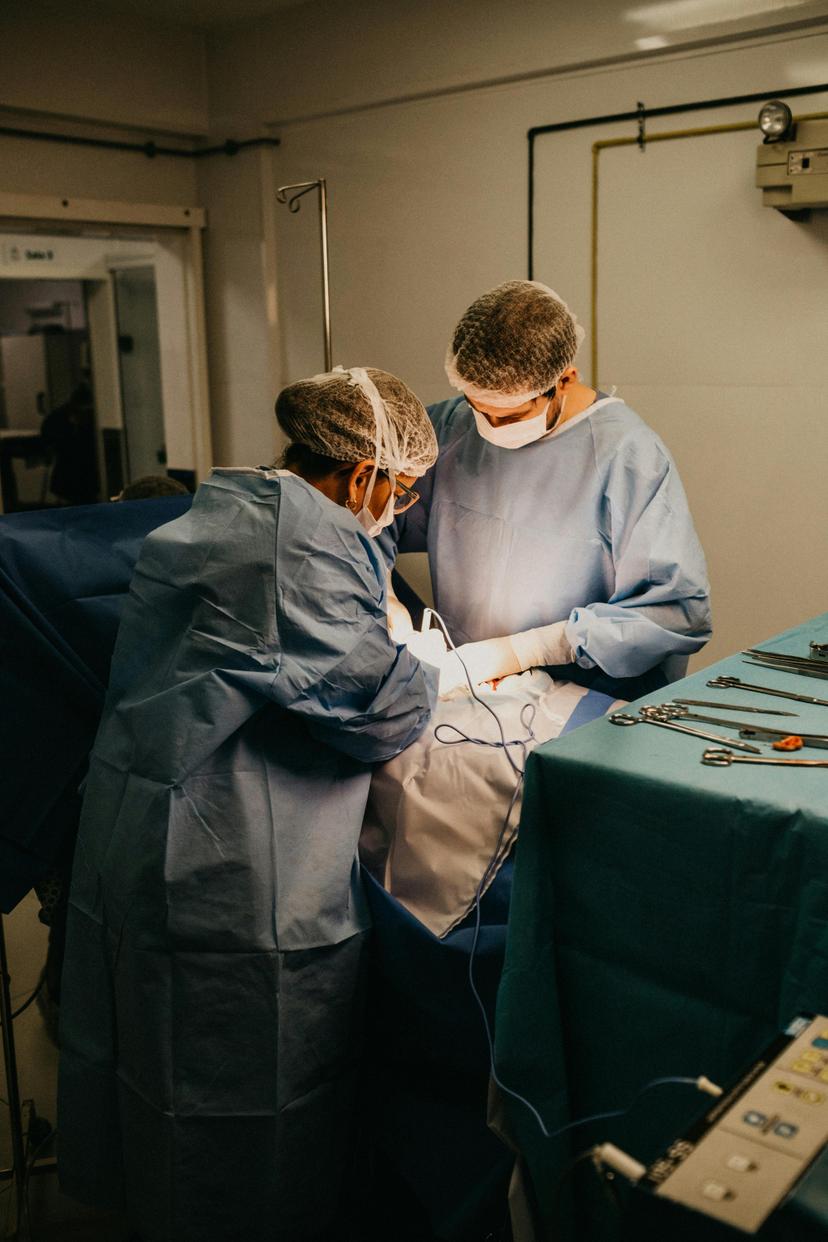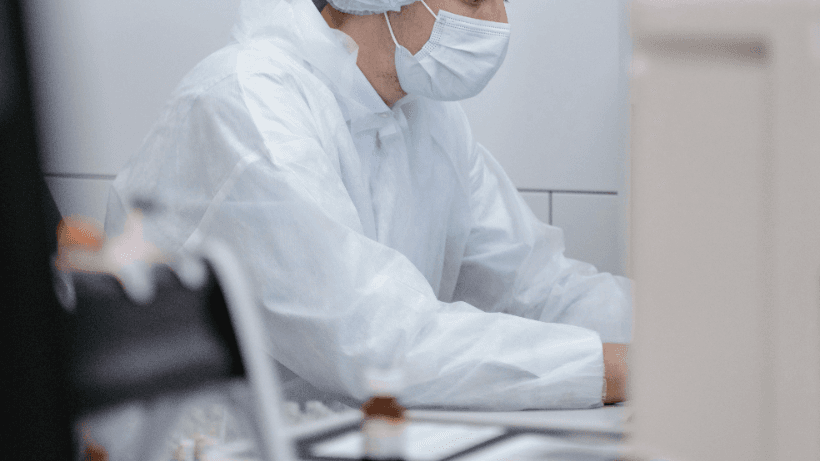
Frequently Asked Questions about Gastric Bypass Surgery
04 May, 2023
 Obaidullah Junaid
Obaidullah JunaidGastric bypass surgery is a surgical procedure designed to help people who struggle with obesity lose weight. It works by changing the way food is digested in the body, resulting in significant weight loss over time. While gastric bypass surgery can be a life-changing procedure for those who are severely obese, it is important to understand the risks and benefits of the surgery before making a decision. In this article, we will answer some frequently asked questions about gastric bypass surgery to help you make an informed decision.
1. What is gastric bypass surgery?
Most popular procedures in India
Gastric bypass surgery is a surgical procedure that involves creating a small stomach pouch and rerouting the small intestine to connect to the new pouch. This limits the amount of food that can be eaten and reduces the absorption of calories in the body, resulting in significant weight loss.
2. Who is a candidate for gastric bypass surgery?
Wellness Treatments
Give yourself the time to relax
Lowest Prices Guaranteed!

Lowest Prices Guaranteed!
Gastric bypass surgery is typically recommended for people who have a body mass index (BMI) of 40 or higher, or a BMI of 35 or higher with other obesity-related health problems such as type 2 diabetes, high blood pressure, or sleep apnea. Candidates for the surgery should also have tried and failed to lose weight through diet and exercise alone.
3. How is gastric bypass surgery performed?
Gastric bypass surgery is typically performed laparoscopically, which involves making several small incisions in the abdomen and using a tiny camera and specialised instruments to perform the surgery. The surgeon will create a small stomach pouch and reroute the small intestine to connect to the new pouch. The surgery typically takes two to four hours to complete.
4. Is gastric bypass surgery safe?
Gastric bypass surgery is generally safe, but like any surgery, it does carry some risks. Some common complications include bleeding, infection, hernias, and blood clots. Patients may also experience dumping syndrome, a condition in which food moves too quickly through the stomach and small intestine, causing nausea, vomiting, and diarrhoea. Vitamin and mineral deficiencies can also occur, and patients will need to take supplements to ensure they are getting enough nutrients.
5. What amount of weight should I expect to lose following gastric bypass surgery?
The amount of weight loss after gastric bypass surgery varies depending on the individual case, but patients can expect to lose between 50% and 80% of their excess weight within the first two years after the surgery.
6. For what duration will I be in the hospital following the surgery?
Most patients will need to spend one to two days in the hospital after the surgery, although this can vary depending on the individual case.
7. Will I have to stick to a specific diet after the surgery?
Yes, patients will need to follow a strict diet after gastric bypass surgery, focusing on protein, healthy fats, and low-carbohydrate vegetables. They will also need to avoid high-sugar and high-fat foods, as these can cause dumping syndrome and other complications.
8. How long does it take to recover after gastric bypass surgery?
Most patients can return to work within two to four weeks after the surgery, although this can vary depending on the individual case. In the first few weeks after the surgery, patients will need to eat only small amounts of soft foods, gradually transitioning to solid foods as they heal.
9. Will I need to exercise after gastric bypass surgery?
Yes, regular exercise is an important part of maintaining weight loss after gastric bypass surgery. Patients should aim to exercise for at least 30 minutes a day, five days a week, and gradually increase the intensity and duration of their workouts over time.
10. Will I be able to eat normally after gastric bypass surgery?
No, patients will need to follow a strict diet after gastric bypass surgery and will not be able to eat large amounts of food. The small stomach pouch created during the surgery can only hold a small amount of food at a time, and overeating can cause discomfort, vomiting, and other complications. Patients will also need to chew their food thoroughly and eat slowly to help with digestion.
11. Will I need to take vitamins or supplements after gastric bypass surgery?
Yes, patients will need to take vitamin and mineral supplements after gastric bypass surgery to ensure they are getting enough nutrients. The surgery can cause deficiencies in nutrients such as iron, calcium, vitamin B12, and vitamin D, and supplements will be necessary to prevent these deficiencies.
12. Will I need to attend follow-up appointments after gastric bypass surgery?
Yes, regular follow-up appointments with a medical team will be necessary after gastric bypass surgery. These appointments will help monitor progress and manage any potential complications that may arise. Patients may also need to attend support groups to help with the emotional and psychological aspects of weight loss.
13. How long does it take to see results after gastric bypass surgery?
Patients will begin to see weight loss results within the first few weeks after gastric bypass surgery, and significant weight loss can be achieved within the first two years after the surgery. However, it is important to remember that gastric bypass surgery is not a quick fix for weight loss and requires significant commitment to follow a healthy diet and exercise regimen.
14. Can I have gastric bypass surgery if I have had other abdominal surgeries?
Yes, it is possible to have gastric bypass surgery if you have had other abdominal surgeries. However, the surgery may be more complicated and carry more risks in these cases.
15. Can gastric bypass surgery cure type 2 diabetes?
Gastric bypass surgery can be effective in improving or even reversing type 2 diabetes in some cases. This is because the surgery can help regulate blood sugar levels and reduce the need for diabetes medication. However, the effectiveness of the surgery in treating diabetes varies depending on the individual case.
16. Can gastric bypass surgery be reversed?
Gastric bypass surgery can be reversed in some cases, but it is typically considered a last resort and should only be done if there are serious complications or health risks. The reversal procedure involves reconnecting the small intestine to the original stomach pouch, which can help restore normal digestive function.
17. What are the long-term risks of gastric bypass surgery?
Some long-term risks of gastric bypass surgery include vitamin and mineral deficiencies, weight regain, and bowel obstruction. Patients may also experience emotional and psychological challenges related to weight loss, and may need to attend support groups or seek therapy to help manage these challenges.
18. How can I prepare for gastric bypass surgery?
Preparing for gastric bypass surgery involves making significant lifestyle changes, including following a healthy diet, exercising regularly, quitting smoking, and managing any health conditions that may affect the surgery. Patients may also need to undergo psychological evaluations to ensure they are emotionally prepared for the surgery and the challenges of weight loss.
19. Is gastric bypass surgery covered by insurance?
Gastric bypass surgery may be covered by insurance in some cases, but coverage varies depending on the individual policy and the specific medical circumstances. Patients should check with their insurance provider to determine if gastric bypass surgery is covered under their plan.
20. How much does gastric bypass surgery cost?
The cost of gastric bypass surgery varies depending on the individual case and the location of the surgery. In the United States, the cost of the surgery can range from USD 20,000 to USD 35,000 or more, depending on factors such as insurance coverage and hospital fees.
Conclusion
Gastric bypass surgery can be a life-changing procedure for those who are severely obese and have struggled to lose weight through other methods. However, it is important to understand the risks and benefits of the surgery and to make a commitment to significant lifestyle changes after the surgery in order to ensure long-term success. By working closely with a medical team, attending support groups, and making healthy choices, patients can achieve significant weight loss and improve their overall health and well-being.
If you are considering gastric bypass surgery, it is important to talk to your doctor about your options and to ask any questions you may have. Your doctor can help you understand the risks and benefits of the surgery and determine if it is the right choice for you. Remember, gastric bypass surgery is not a quick fix for weight loss and requires significant commitment to lifestyle changes in order to be successful. However, for those who are struggling with severe obesity and related health conditions, gastric bypass surgery can be a life-changing procedure that can improve health, quality of life, and longevity.
If you have any concerns or questions about gastric bypass surgery, it is important to talk to your doctor or a qualified medical professional. They can help guide you through the process and ensure that you have the information you need to make an informed decision about your health and well-being.
Most popular wellness packages
Related Blogs

Healthtrip: Your Guide to Weight Loss Surgery Tourism
Discover safe, effective, and affordable weight loss surgery options abroad

Laparoscopic Gastric Bypass: A Weight Loss Solution
Discover the benefits of laparoscopic gastric bypass, a minimally invasive

Top Hospitals for Bariatric Surgery in Thailand
Finding reliable hospitals for bariatric surgery in Thailand can be

Gastric Bypass Surgery and Sleep Apnea: How One Can Help the Other
Obesity and sleep apnea are two related health problems that

What to Expect During and After Gastric Bypass Surgery: A Step-by-Step Guide
Gastric bypass surgery, also known as Roux-en-Y gastric bypass, is

Gastric Bypass Surgery and Type 2 Diabetes : What You Need to know
Diabetes is a severe health issue that affects millions of










